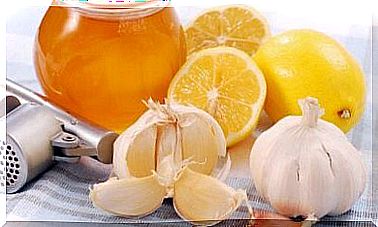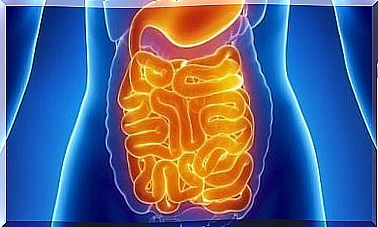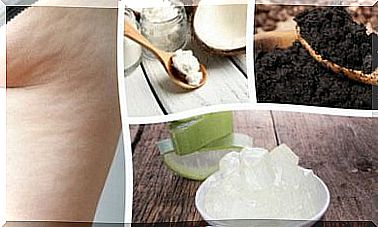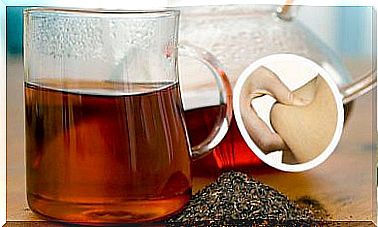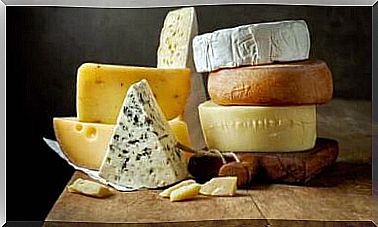Do Calories Turn Into Fat?
Do you tend to look at the calories in a food to know if it makes you fat? Find out more about excess food calories and how they are stored.
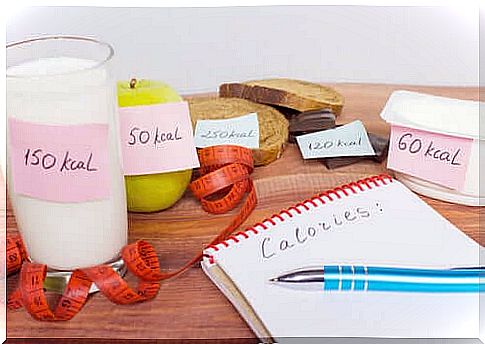
Until a few years ago, the energy value of a food and the belief that calories turned into fat were central to weight loss diets. The energy balance was almost the only parameter to be evaluated.
Nowadays, we know that is not the only aspect to take into account. The type of food we eat, the main nutrients they provide us, the way our hormonal system reacts or the time that elapses between each meal are other aspects that also have a big impact on our body composition. .
What are calories? What happens if we consume too much?
Calories are a measure we use to estimate how much energy a food provides to us. They provide the body with the fuel it needs to perform its vital functions and create structures.
Once the food is digested, the energy it contains is released and used by the different cells. All the energy that is not used at the moment is stored for later use.
- The first storage of energy in our body is in the muscles and the liver, where it is stored in the form of glycogen.
- The other form of energy reserve are adipocytes or fat cells in which we store energy that we do not use in the form of lipids.
This is why it is said that calories turn into fat. Because, when we exceed the immediate needs of our body, the excess energy is stored in the form of fat.
However, a high percentage of fatty tissue can be harmful to health because it is linked to the appearance of metabolic problems, among others.
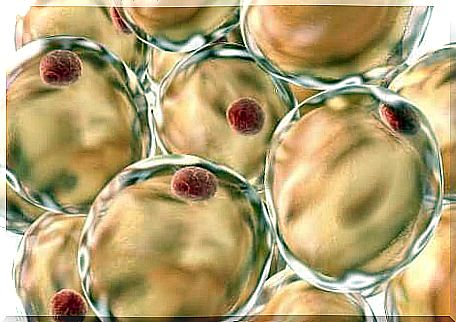
Other aspects to consider beyond calories
Calories are one of the determining factors in terms of nutrition and weight gain. In reality, what is evaluated is the balance between intake and energy expenditure. But there are also other aspects which come into play and which are related to each other: among them we can mention the following.
Nutritional composition of foods
Calories do not work in the body the same way depending on whether they come from different macronutrients. For example, proteins have a great capacity for satiety as well as a greater thermogenic effect than fats or carbohydrates.
On the other hand, depending on the general composition of our daily diet, some metabolic pathways are activated and others are not. So it also ends up affecting how calories are metabolized and how they turn into fat.
The last calories that end up being absorbed
We must keep in mind that we do not always absorb the total energy supplied by a food. Several factors influence this parameter, such as the type of cooking of the food or the state of our intestinal flora.
Do calories turn into fat? Hormonal aspects
Calories give us energy, but the way we process and use all that energy is regulated by hormones. Any influence on our hormonal system will eventually change the way we use and store calories.
The satiating effect of food
Not all foods make us feel the same. The predominant nutrient in a meal or the method of preparation will cause a feeling of greater or lesser satiety.
When the stomach is full, it sends signals to the brain that tell it that we have eaten enough. Therefore, the total calories ingested should be more or less the same at the end of each meal.
Calories turn into fat: it’s also a question of quality
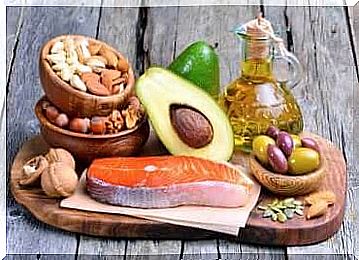
When we want to diet or gain weight, we often tend to focus exclusively on the amount of calories we eat. While it may be necessary on some specific occasions, the quality of the calories should not be overlooked.
Indeed, the same amount of calories will not have the same effect in our body if it comes from one type of food or another. It is therefore essential to value the type of food that is part of the diet. Nowadays, we know that highly processed foods are directly associated with:
- A greater risk of obesity
- Arterial hypertension
- Metabolic problems
- High LDL cholesterol, among others
Therefore, it is best to follow a suitable feeding program in which predominates fresh and minimally processed foods such as fruits, vegetables, legumes, whole grains, eggs, etc. Likewise, we should consume prepared meals, snacks, cakes or pastries more occasionally.
If we base our diet on the foods of the first group, their impact on metabolism, satiety or thermal effect, will be much more balanced than if we eat processed foods. Also, the excess calories will not turn into fat as easily. In the long term, this is beneficial for our health.
A calorie deficit is not healthy
We have seen how sometimes excess calories can turn into fat. Which can be harmful to our health.
However, cutting back on calories too much isn’t healthy either. This is usually done by the fear of not burning the calories right now and then storing them. But this trend is not recommended.
Insufficient energy intake can also mean a lack of other basic nutrients, like vitamins, minerals, and protein, which our bodies need to function and build structures. This in turn can lead to mood problems, lack of focus and energy, among others.
In addition, in the long term and contrary to what would seem logical to us, it can end up producing an increase in weight and fat. Indeed, the body becomes very thrifty with the lack. As it does not detect the arrival of food, it becomes reluctant to detach itself from the accumulated fat in order to be able to maintain certain energy reserves.
Calories turn into fat due to several factors
We need to stop thinking only in terms of calories and start thinking about the quality of the food we eat. Their nutritional composition, the way of cooking and consuming them.
Finally, we must also take into account the fact that all the aspects that influence our hormonal system, such as exercise, sleep or stress, also have an impact on the way our body processes and stores calories.

